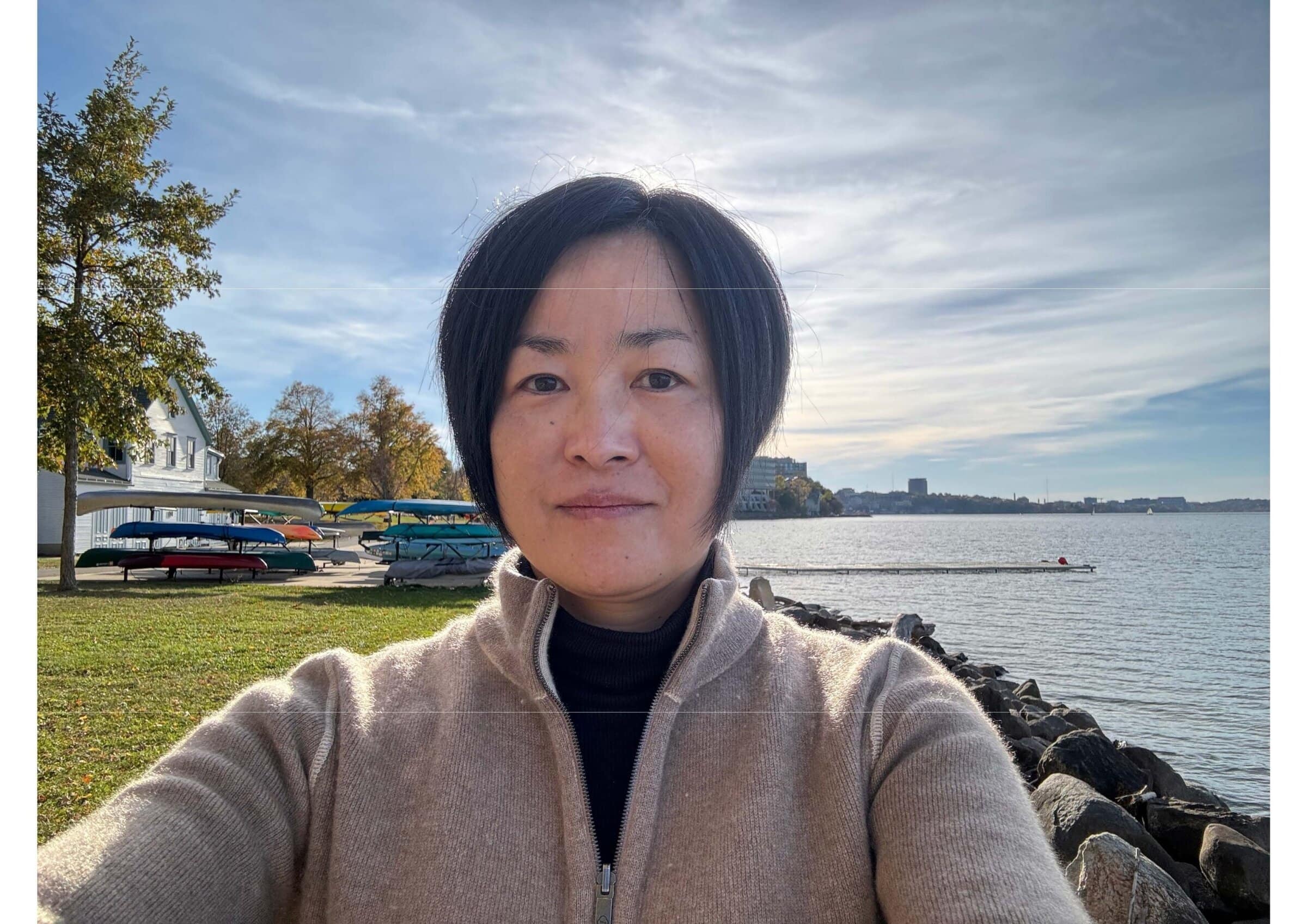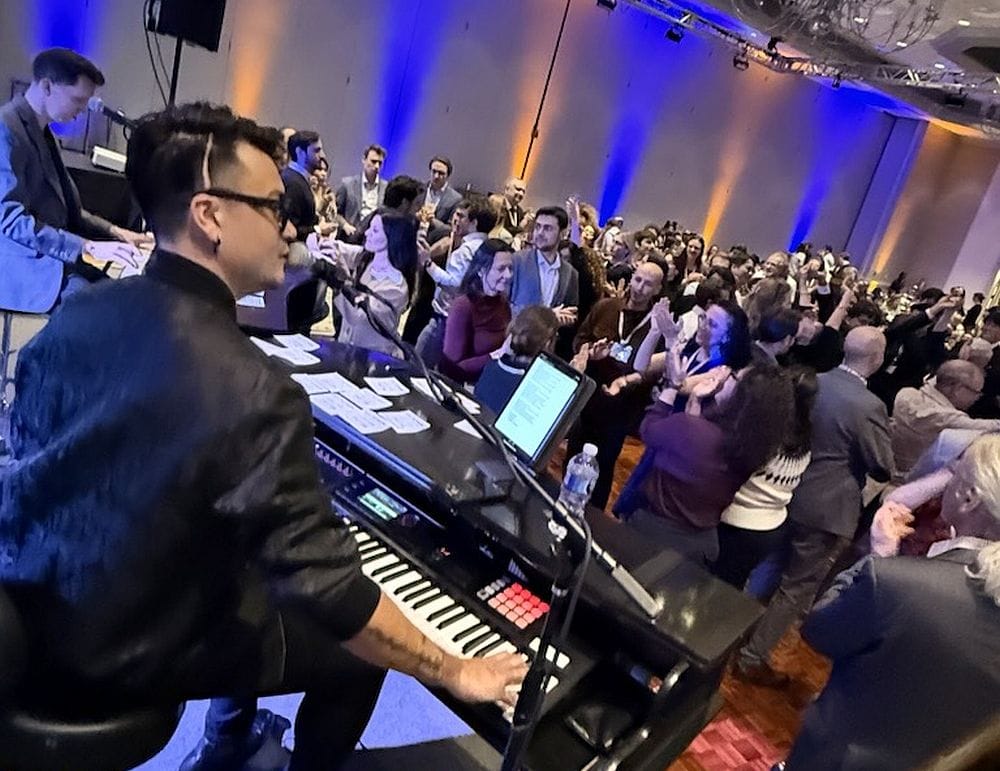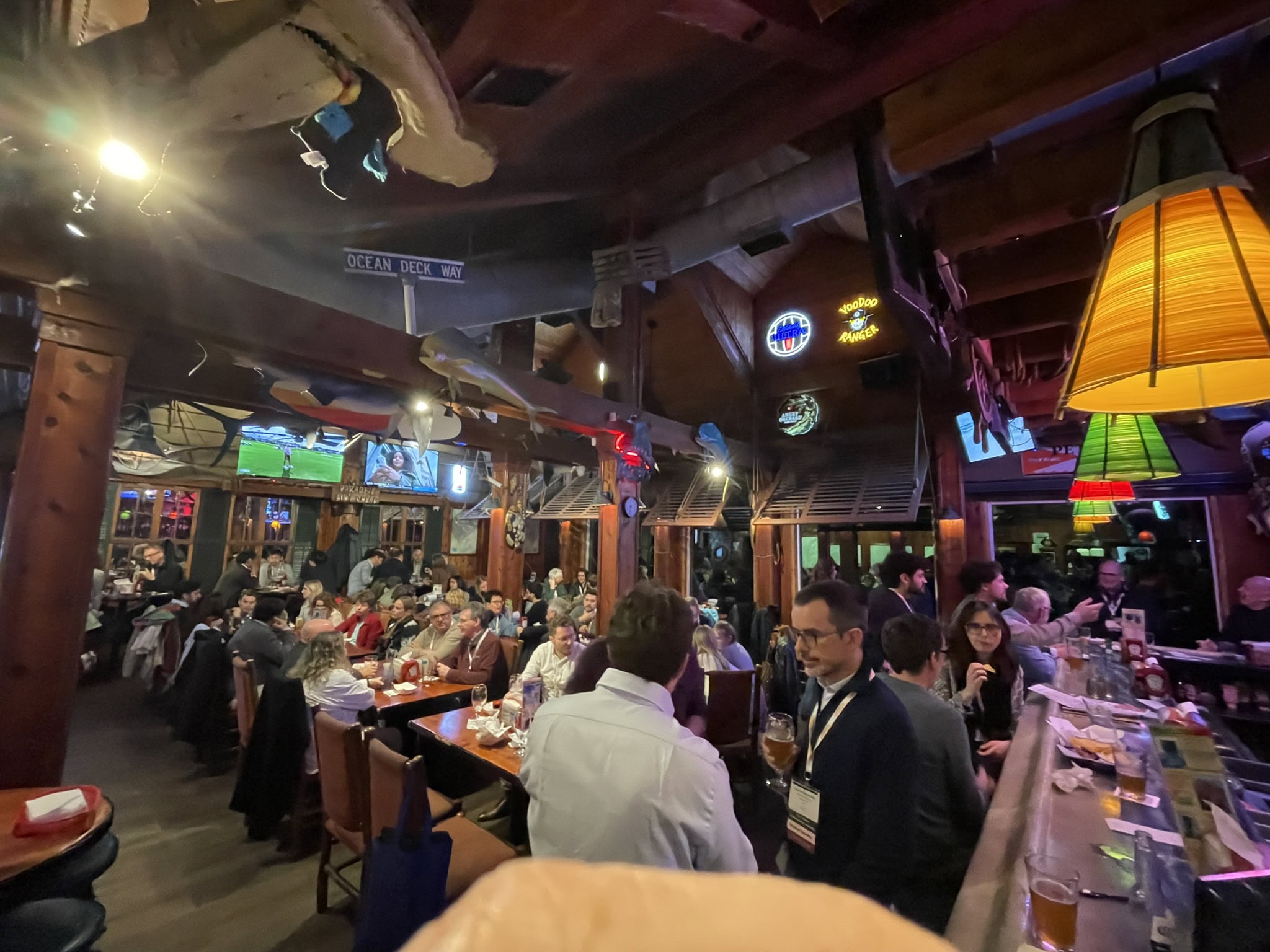
[Image above] Attendees and exhibitors mingle in the exhibitor area between sessions. Credit: ACerS
Problems are not necessarily a bad thing—they are what drive us toward innovation.
That was a common theme among the talks at the 80th Conference on Glass Problems (GPC), which took place this past week October 28–31 in Columbus, Ohio.
GPC is the largest glass manufacturing conference in North America, and it is co-organized by The Glass Manufacturing Industry Council (GMIC) in partnership with Alfred University.
“The purpose of presenting the annual Conference on Glass Problems is to create a platform for the dissemination of glass manufacturing innovation through technical education and a meeting place where glass manufacturing professionals can exchange ideas with their colleagues and their providers of services and goods,” Bob Lipetz, executive director of GMIC, says. “The 80th Conference on Glass Problems was a great success in meeting those objectives this year.”
This year’s conference set a new attendance record with 570 attendees, including 40 students. “Similarly, the GMIC-organized symposium [October 31] on ‘Sustainability in Glass Manufacturing’ had record breaking attendance,” Lipetz adds.
The conference began Sunday night with a GPC Advisory Board Dinner. On Monday, Oct. 28, attendees had the chance to attend one of two short courses: “Fundamentals of Batch and Furnace Operations” taught by C. Philip Ross, president of Glass Industry Consulting International; or “Refractories” taught by Michel Gaubil, director of refractory solutions engineering at Saint-Gobain SEFPRO. Additionally, students participated in a plant tour of Owens Corning Newark.

The first two plenary talks on Tuesday, Oct. 29 gave an overview of the challenges and opportunities in the glass industry, with a big focus on the need for innovation in the industry.
“We need to be bolder, more confident and trusting,” Ludovic Valette, vice president of global R&D at Owens-Illinois, says during his plenary.
That need for innovation was a consistent theme throughout the rest of the plenaries and talks over the next two days. Innovation was discussed in regard to multiple parts of the glass manufacturing process, including in regard to furnace types and improvements, for example, oxy-fuel and electric boosting.

Sustainability was another key theme discussed at the conference.
“CO2 reduction is a must to rescue planet earth for our children,” Erik Muijsenberg, vice president at Glass Service Inc., says in his talk on carbon reduction with super boosting and advanced energy management.
Multiple ways to achieve sustainability were discussed, including through strategic use of glass and refractory coatings. Also, sustainability was deeply discussed during the GMIC-organized symposium on Thursday, Oct. 31, which focused on that topic.
Between sessions, attendees explored the exhibitor area. Some exhibitors who regularly attend GPC gave their reasons for continuously coming back.
“I’ve been coming to the Glass Problems Conference for 43 consecutive years as an exhibitor and as a participant,” Ron Argent, consultant, says. “The primary reason I come is to meet old friends and to network. This is the only meeting in the United States that clearly represents the glass industry.”
One exhibitor that has contributed greatly to GPC over the years is Air Products in Allentown, Pa. Each year at GPC, the Air Products Foundation hosts a hospitality suite at the conference. For every guest who stops by the suite, the company will donate $100 to the Ceramic and Glass Industry Foundation (CGIF) and GMIC, up to $15,000. In addition to helping students attend GPC, the money helps the CGIF in its mission to attract talent in the ceramic and glass industry.

The 81st Conference on Glass Problems will take place Oct. 26–29, 2020 in Columbus, Ohio. Abstract submissions are open until Jan. 29, 2020 at 9 p.m. EST. Next year’s GMIC symposium is on “The Future of Glass Manufacturing.”
To view more photos, visit our Flickr.
Author
Lisa McDonald
Spotlight Categories
- Meeting Highlights
Related Posts
Volunteer spotlight: Fumie Iizuka
February 19, 2026
Celebrating a half century of engineered ceramics at ICACC 2026
February 17, 2026


